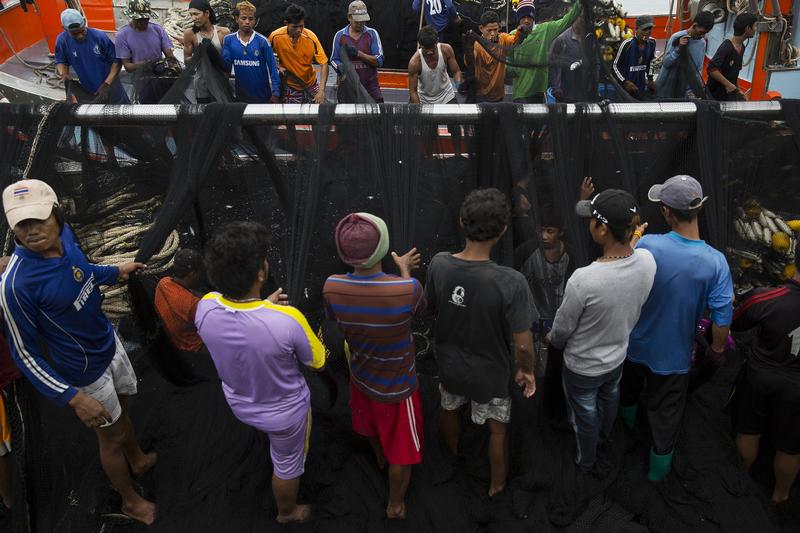Fishermen in Thailand remain at risk of forced labour, and the identity documents and wages of some continue to be withheld, despite pressure from major retailers to clean up the industry, the International Labour Organization (ILO) said on Wednesday.
However, the United Nations’ labour agency also noted that conditions overall had improved, both on fishing vessels and at seafood processing plants onshore.
Thailand’s multibillion-dollar seafood sector has come under scrutiny in recent years after investigations showed slavery, trafficking and violence on fishing boats and at onshore processing facilities.
“There are important changes in the industry and evidence of both progress and persistent abuses,” said the ILO report, which surveyed 434 workers in the sector.
The military, which took power in a 2014 coup, has rolled out reforms since the European Union threatened in 2015 to ban fish imports from Thailand unless it cleaned up the industry.
“Buyers like Tesco, Costco and Nestle want a competitive, reputable industry,” said Jason Judd, who works with the ILO on labour issues in Thai fisheries.
“So the stronger rules are needed, and it’s enforcement of those rules that’ll make the difference here in the coming year.”
Much is at stake for Thailand, the ILO noted, where the fishing and seafood industries contributed $6.6 billion to exports in 2014. The sectors employed more than 600,000 people last year, including 302,000 registered migrant workers.
Researchers asked about seven indicators of forced labour, including abusive working conditions, excessive overtime and the withholding of wages and identity documents.
They found employers often complied with the new rules, including paying fishermen a minimum wage and issuing contracts. But they also noted strong indicators of forced labour, especially among migrants from Cambodia and Burma.
“A minimum wage for workers in fishing is an important change. But withholding of wages — 24 percent for fishers in our survey reported waiting many months for pay — is still a problem,” Judd told the Thomson Reuters Foundation.
[related]
One in three fishermen said employers kept their identity documents “to prevent workers from leaving,” the report said.
The picture was more positive ashore — just 7 percent of seafood processing workers said documents were withheld, and none reported wages being held back.
Overall, 29 percent of fishermen had not experienced any indicators of forced labour; that was also the case for 56 percent of workers at seafood processing plants.
A recent study by the Issara Institute, a Thai-based anti-trafficking body, found many fishing operators were oblivious that grim on-board conditions constituted forced labour.



